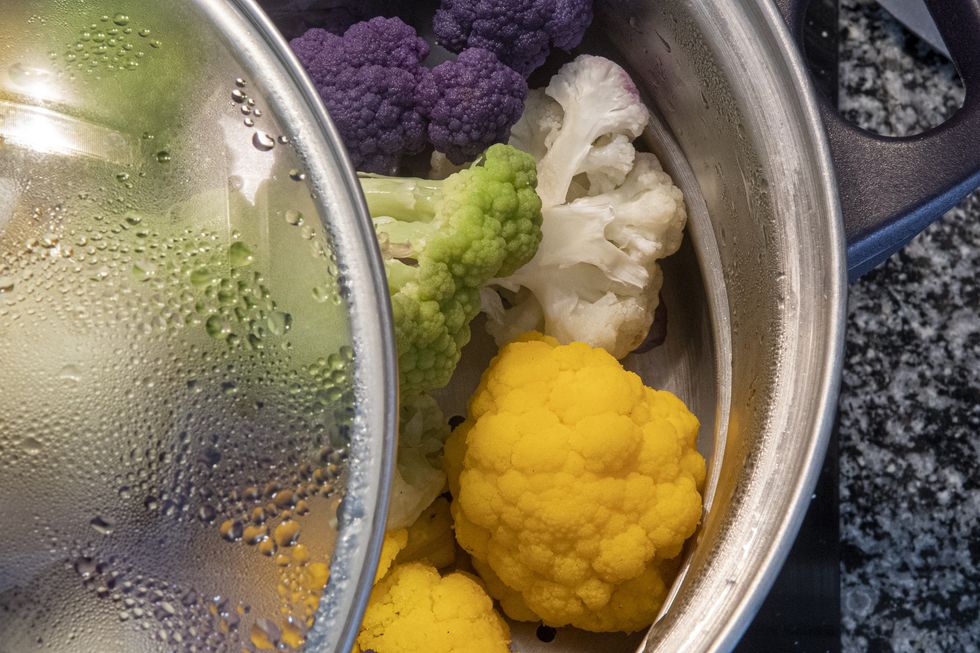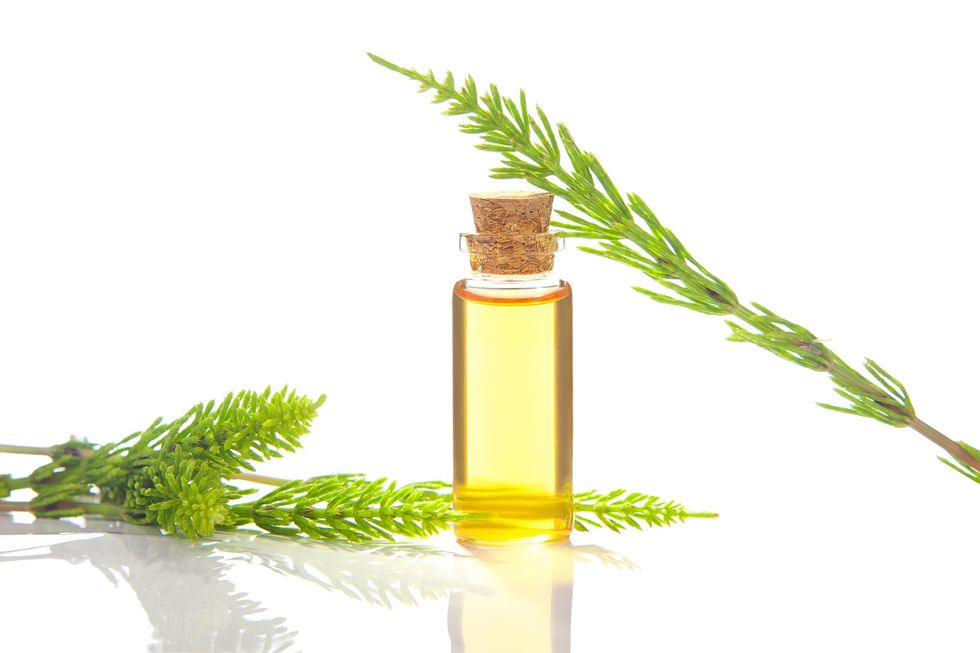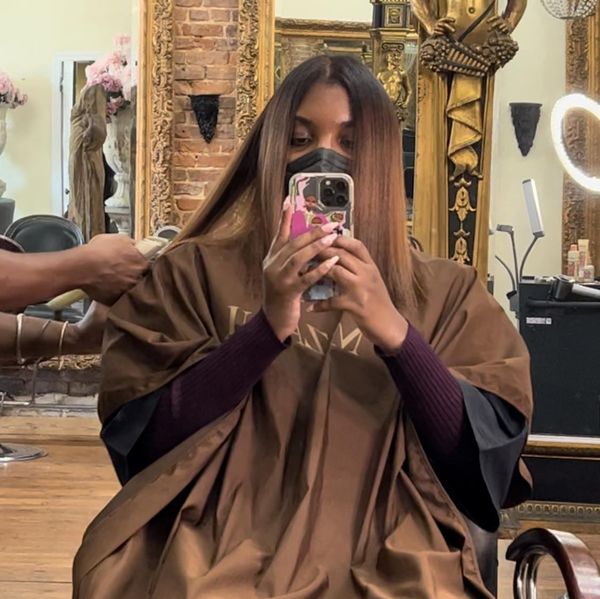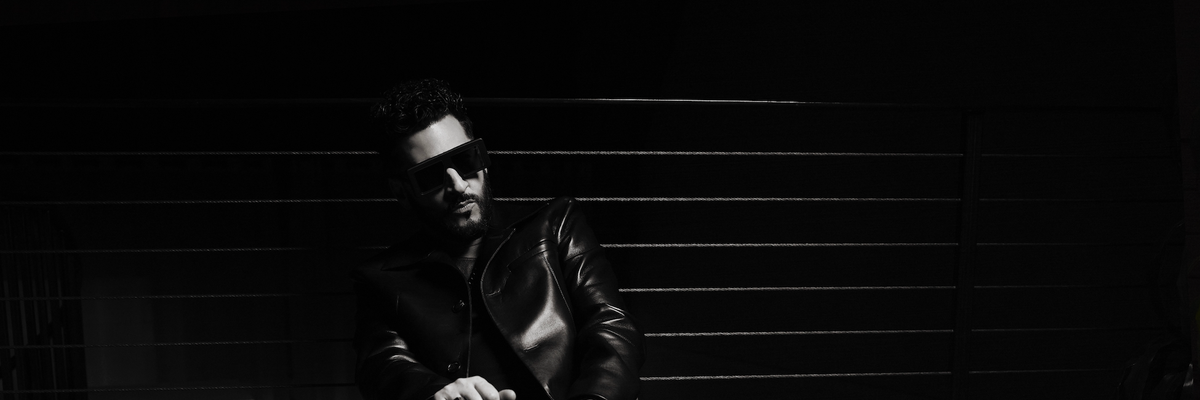
Although I’m going to forever be the woman who thinks that ladies should never be ashamed of their age — because aging is a beautiful thing as well as a blessing — that doesn’t mean I think that we should be out here just letting ourselves go. The reality is, that we can tell the truth about our birthdays and still earn a ton of compliments about how good we look on each and every one of them when we are aware of the many ways to slow down the physical appearance of aging.
By factoring in things like eating healthy, drinking less alcohol, exercising, not using beauty products that contain harsh chemicals, and keeping stress down to a minimum, you are playing a significant role in keeping your skin (and hair) looking younger than it actually may be.
Today, to go along with those things, I’ve provided 12 other tips that can help slow down the aging process as far as how you look goes. The cool thing about all of them is they are all-natural, easy to implement, and have been proven to be effective.
1. Eat Some Broccoli and Cauliflower

Getty Images
As I was doing a bit of research for this article, my 'something new' was learning that the Latin word cruciferae means “cross bearing;" apparently, it’s because many “mustard-related” veggies have four petals that resemble a cross (interesting). Ironically enough, if you want to keep your skin looking youthful and healthy, cruciferous vegetables can be its (pardon the pun) saving grace. Not only do veggies like broccoli, cauliflower, and arugula help to restore some of the immunity that declines as we get older, they can help to lower the risk of a breast cancer diagnosis.
Also, because they are loaded with vitamin C, the collagen that’s in that particular nutrient can help to reduce the appearance of fine lines and wrinkles too.
2. Consume More Fatty Acids
A simple explanation of fatty acids is they’re the kind of fats that are actually good for you, especially as far as your heart is concerned. The reason why your skin and hair like them so much is because they contain properties that help to protect them both from UV damage, they can keep your skin and hair hydrated and, when it comes to your hair, specifically, fatty acids are able to help to prevent hair loss (something that can become an issue as you get older).
Another cool thing about fatty acids is they have the ability to keep the surface layers of your skin looking smooth and even. One way to get fatty acids into your system is to take an omega supplement or fish oil supplement. Another option is to consume foods that are loaded with them. Some of those include salmon, chia seeds, pasture-raised eggs, spinach and anchovies.
3. Create an Essential Oil Blend
Any time that I’m given the opportunity to shout out some type of essential oil, you can absolutely believe that I am going to do it. Today, since the focus is slowing down the appearance of aging, I’m going to share a few that can help you out in that department. One that I like a lot is rosemary oil. To me, it provides a radiant glow without a (super) oily residue. Beyond that, it also helps to fight off the kind of free radicals that can lead to cellular damage and make your skin look older than it actually is.
Sandalwood oil is another great option; that’s because it contains properties that can help to smooth out the appearance of fine lines. Another essential oil to consider is neroli; it’s been known to help with cell renewal (so that your skin loses more dead skin cells; frankincense can do this as well). Add one or all of these to a carrier oil (to dilute the potency in them), and you’ll have a great moisturizer to put on your skin before turning in at night.
4. Bathe in Milk

Getty Images
Although I can’t tell you the last time that I drank a cup of milk (I’m more of an oat milk gal, myself), if there’s one thing that I will do, with the quickness, is hop into a tub that is filled with some dairy milk in it. Why? Well, between the vitamins A and D along with the lauric acid that’s in it, milk is awesome when it comes to gently exfoliating your skin, deeply moisturizing it, and reducing skin inflammation.
In fact, if you’ve been looking for a chemical-free type of skin cleanser, some skin experts say that washing your face in milk can be just as (if not more) effective than many popular skincare products. Oh, and while we’re on the topic, when it comes to your hair, milk can also reduce dryness, heal dandruff, and reduce split ends. Yep, cosmetically, milk totally has your back in a myriad of different ways.
5. DIY a Blend of Shea Butter and Aloe Vera
If you’ve ever looked at (eh hem) certain other folks and wondered why some of them look twice their age, a big part of it is because, if they’ve spent years in the sun and didn’t protect their skin in the process, the UV rays have damaged it. Photoaging is one term for it and it can lead to things like wrinkles, hyperpigmentation, and a loss of skin’s elasticity. And while it is indeed true that the extra melanin in our skin helps to slow down the aging process, never fall for the okey-doke that you don’t need sunscreen as well.
That said if you’d prefer an all-natural DIY alternative, mix some shea butter and pure organic aloe vera gel together. Not only will shea butter help to protect your skin from the damage that the sun can do, but it will also moisturize it and protect it from cellular damage; plus, it’s rich in vitamins A and E. As far as aloe vera gel goes, it will deeply hydrate your skin, work to prevent sun damage from happening in the first place and, if you happen to have eczema or psoriasis, it can reduce inflammation and irritation that spending time in the sun may trigger too.
6. Drink Some Black Tea
If you’re a tea drinker, the fact that black tea can help you to live longer (by reducing your risk for heart disease and a stroke), is already enough of a reason to drink it on a consistent basis. However, as far as slowing down the signs of aging goes, another dope thing about black tea is it contains antioxidants that can protect your skin from sun damage from the inside out. Plus, the polyphenols in them (which are basically organic compounds) can help to slow down the development of fine lines and wrinkles, slow down the gene that slows down the production of collagen in your system and, black tea is good at strengthening your hair over time as well.
7. Watch Those Straws

Getty Images
OK, so last year, Allure published an article entitled, “Is Your Stanley Tumbler Changing Your Face?” Guess what the answer was? Basically, yes. Not if you suck on a straw every once in a while, but if you’re doing it constantly, you are very much so on your way to having more fine lines around your mouth than you probably would like. Now, is there some type of a workaround? Apparently, there are some anti-wrinkle straws that are making their way into the marketplace space; however, being intentional about not pursing your lips together so much and also making sure that the skin around the outside of your lips is well-moisturized at all times? Those hacks also can come in pretty handy.
8. Exfoliate Your Hands and Your Neck
This point, I’ve stated before. Y’all, even before I reached the age that it personally mattered, if there was one thing that irked me to no end, it was seeing a woman whose face looked one age while her neck looked another. SMDH. Listen, it doesn’t matter how much you try, and conceal your actual years on this planet if you’re overlooking the needs of your neck and hands while doing it. Why? Well, if two things are gonna “tell on you,” they would be it. That’s why, aside from (of course) washing and moisturizing those parts of your body, it’s also important that you exfoliate them too.
When it comes to your neck, some dermatologists recommend doing the exfoliation process with a product that contains alpha-hydroxy acid. Another option is to exfoliate your neck and hands with an all-natural body scrub that’s made from fruit (some recipes are here); ones like strawberries contain a “grit” that can help to remove dead skin while the antioxidants in them will help to give your skin a healthy glow.
9. Scrub Your Scalp
A part of the reason why I wrote the article, “10 Things Your Scalp Has BEEN Waiting For You To Do,” for the platform is because if there’s one part of our body that tends to not get the kind of pampering and care that it deserves, it’s our scalp. And, as far as TLC goes, one thing that is an absolute must is exfoliation on wash days. Not only will it help to break up dandruff flakes and get rid of dry skin that may cause itchiness and irritation, but scalp exfoliation is also great for your hair overall. For one thing, it helps to remove any build-up that could be clogging your hair follicles, and it helps to reduce stress so that your hair can grow healthy and strong (which is always a plus as you get older).
10. Apply Horsetail Plant Oil

Getty Images
Speaking of hair, since it’s been reported that more than half of women over 50 will experience some level of at least semi-noticeable hair thinning or hair loss, in part due to the changes that come along with perimenopause and menopause, horsetail plant oil is something else that you might want to keep in your possession. The silicon and antioxidants in the oil will help to prevent hair thinning and the phenolic compounds in it will help to keep oxidative stress and damage at bay.
11. Deep Breathe
As far as your health is concerned, you may have already heard or read somewhere that deep breathing can help to reduce stress (and since a lot of serious health issues are directly tied to stress, that’s a good thing to keep in mind). However, did you also know that since deep breathing can make you calmer, that can ultimately help your body to produce more collagen which, in turn, can help you to look youthful? Yep, by devoting just five minutes, twice a day, to deeply inhale and exhale, you can get anxiety off your back while also bringing more oxygen to your skin, which helps with cell renewal and rejuvenation.
12. Sleep on Your Back
And finally, how do you sleep? Is it on your stomach? On your side? Or on your back? If the answer is “C,” even if you’re just doing it for comfort’s sake, you are actually benefitting your health on a few different levels. Sleeping on your back helps you to breathe better, can help to clear up sinus, headache, neck, and back tension; and, because your face is not rubbing against your pillow and sheets all night long, it just might reduce the chances of you experiencing breakouts too. Also, as far as aging goes, since moving around on your bedding can also create friction on your skin that can ultimately result in fine lines — well, that’s just one more reason to consider sleeping on your back, at least a couple of times a week.
___
See, I told you. By just making a few minor adjustments to your lifestyle (and doing them consistently), you can be well on your way to being one age and looking another. Try these and tell me it ain’t so!
Let’s make things inbox official! Sign up for the xoNecole newsletter for love, wellness, career, and exclusive content delivered straight to your inbox.
Featured image by PeopleImages/Getty Images
- I've Got 10 Teas That Will Help You To Age (Even More) Gracefully ›
- Eat Your Way To Better Sex With Aphrodisiacs ›
- Women In Their 40s Share The Beauty-Related Things They Wish They Did In Their 20s ›
Exclusive: Viral It Girl Kayla Nicole Is Reclaiming The Mic—And The Narrative
It’s nice to have a podcast when you’re constantly trending online. One week after setting timelines ablaze on Halloween, Kayla Nicole released an episode of her Dear Media pop culture podcast, The Pre-Game, where she took listeners behind the scenes of her viral costume.
The 34-year-old had been torn between dressing up as Beyoncé or Toni Braxton, she says in the episode. She couldn’t decide which version of Bey she’d be, though. Two days before the holiday, she locked in her choice, filming a short recreation of Braxton’s “He Wasn’t Man Enough for Me” music video that has since garnered nearly 6.5M views on TikTok.
Kayla Nicole says she wore a dress that was once worn by Braxton herself for the Halloween costume. “It’s not a secret Toni is more on the petite side. I’m obsessed with all 5’2” of her,” she tells xoNecole via email. “But I’m 5’10'' and not missing any meals, honey, so to my surprise, when I got the dress and it actually fit, I knew it was destiny.”
The episode was the perfect way for the multihyphenate to take control of her own narrative. By addressing the viral moment on her own platform, she was able to stir the conversation and keep the focus on her adoration for Braxton, an artist she says she grew up listening to and who still makes her most-played playlist every year. Elsewhere, she likely would’ve received questions about whether or not the costume was a subliminal aimed at her ex-boyfriend and his pop star fiancée. “I think that people will try to project their own narratives, right?” she said, hinting at this in the episode. “But, for me personally – I think it’s very important to say this in this moment – I’m not in the business of tearing other women down. I’m in the business of celebrating them.”
Kayla Nicole is among xoNecole’s It Girl 100 Class of 2025, powered by SheaMoisture, recognized in the Viral Voices category for her work in media and the trends she sets on our timelines, all while prioritizing her own mental and physical health. As she puts it: “Yes, I’m curating conversations on my podcast The Pre-Game, and cultivating community with my wellness brand Tribe Therepē.”
Despite being the frequent topic of conversation online, Kayla Nicole says she’s learning to take advantage of her growing social media platform without becoming consumed by it. “I refuse to let the internet consume me. It’s supposed to be a resource and tool for connection, so if it becomes anything beyond that I will log out,” she says.
On The Pre-Game, which launched earlier this year, she has positioned herself as listeners “homegirl.” “There’s definitely a delicate dance between being genuine and oversharing, and I’ve had to learn that the hard way. Now I share from a place of reflection, not reaction,” she says. “If it can help someone feel seen or less alone, I’ll talk about it within reason. But I’ve certainly learned to protect parts of my life that I cherish most. I share what serves connection but doesn’t cost me peace.
"I refuse to let the internet consume me. It’s supposed to be a resource and tool for connection, so if it becomes anything beyond that I will log out."

Credit: Malcolm Roberson
Throughout each episode, she sips a cocktail and addresses trending topics (even when they involve herself). It’s a platform the Pepperdine University alumnus has been preparing to have since she graduated with a degree in broadcast journalism, with a concentration in political science.
“I just knew I was going to end up on a local news network at the head anchor table, breaking high speed chases, and tossing it to the weather girl,” she says. Instead, she ended up working as an assistant at TMZ before covering sports as a freelance reporter. (She’s said she didn’t work for ESPN, despite previous reports saying otherwise.) The Pre-Game combines her love for pop culture and sports in a way that once felt inaccessible to her in traditional media.
She’s not just a podcaster, though. When she’s not behind the mic, taking acting classes or making her New York Fashion Week debut, Kayla Nicole is also busy elevating her wellness brand Tribe Therepē, where she shares her workouts and the workout equipment that helps her look chic while staying fit. She says the brand will add apparel to its line up in early 2026.
“Tribe Therepē has evolved into exactly what I have always envisioned. A community of women who care about being fit not just for the aesthetic, but for their mental and emotional well-being too. It’s grounded. It’s feminine. It’s strong,” she says. “And honestly, it's a reflection of where I am in my life right now. I feel so damn good - mentally, emotionally, and physically. And I am grateful to be in a space where I can pour that love and light back into the community that continues to pour into me.”
Tap into the full It Girl 100 Class of 2025 and meet all the women changing game this year and beyond. See the full list here.
Featured image by Malcolm Roberson
Jon B. Talks New Album, 18-Year Marriage & Being A Girl Dad
Since 1995, Jon B. has been entertaining us with his soulful voice, belting out R&B classics like “They Don’t Know” and “Someone to Love.” Despite his immense success, Jon decided to prioritize his family and take a step back from the music scene. He got married, and together, he and his wife had daughters. While he didn’t release any new music during this period, Jon remained dedicated to his fans by touring and maintaining his connection with them.
"I'm raising two daughters," he tells xoNecole exclusively. "One is 11 now, and one is 18, and both need their dad. Besides being a father, a rock star on the weekends, and a husband of 18 years, the real thing that kept me the busiest over the last 10 years was the road, keeping the bread on the table, and staying with my fans. Nevertheless, connecting with the fans and keeping that relationship alive. Regardless of whether I was on the radio every five minutes or whatnot. I just wanted to keep that relationship alive, and the best way to do that is just go and perform."
A decade later, Jon B. dropped a new album, WAITING on YOU. The album title alone is a nod to fans who have been waiting on him to release new music. The "Are You Still Down" singer collaborated with Rick Ross, Alex Isley, Tank, and Donell Jones on the album, giving fans a little bit of everything.
"Compiling this album was a labor of love because it was me sort of picking the gems. I wrote so many songs over the last 30 years. I wanted to go back and dust some old gems off and see if I can rework these records," he says. "Some of them are kind of reworks from back in the day, from back in the late '90s. I just kind of love the beat. One of the songs on my album is a vintage cut. I'll call it a vintage cut because I did it in '98. It's a song called "Pick Me Up."
"There's a little bit of the old and a little bit of the new, but WAITING on YOU, I felt was an appropriate name for the album, being that it was 10 years and it's really about my relationship that I have with my fans. Not only is it the relationship I have with my wife and my children, it's the extended relationship I have with with you guys, the listeners."
"There's a little bit of the old and a little bit of the new, but WAITING on YOU, I felt was an appropriate name for the album, being that it was 10 years and it's really about my relationship that I have with my fans."
His wife and kids are his biggest supporters and he shared that they sometimes give their opinion on his music. When it comes to his relationship with his wife, he says communication and patience are the keys to lasting. "I don't mean to sound like Dr. Phil up in here, but 18 years, going on 19, and it's like, I'm not counting, but I guess we're doing something right because we're very happy people," he says.
"I'm making music that reflects what I feel in my heart, which is pretty cool to share with the world now as a grown ass man instead of a guy who was growing up and had an old soul and I was figuring stuff out. I'm grateful for those records, but I really feel like these records are like a guy celebrating everything that I've been blessed to experience so far."
Let’s make things inbox official! Sign up for the xoNecole newsletter for love, wellness, career, and exclusive content delivered straight to your inbox.
Feature image courtesy









